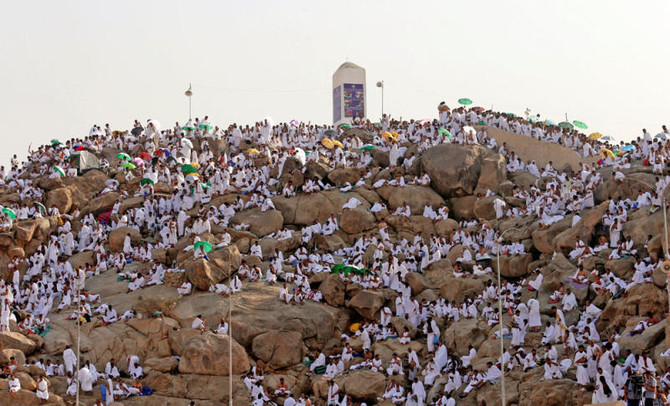
Saudi stops stoning ritual for five hours over heatwave
Because of the intense heat, the Saudi Ministry of Hajj and Umrah has prohibited pilgrims from going to the Jamarat Bridge between 11 a.m. and 4 p.m. for the custom of hurling stones.
The instruction was released in a statement on Monday in Mina, Makkah, Saudi Arabia, by Dr. Abdulfattah bin Sulaiman, the Saudi Minister of Hajj and Umrah.
Sulaiman said that the steps had to be taken in order to protect pilgrims' health from heat exhaustion and to guarantee their safety in hot weather.
As a result, the following actions have been taken: from 11 a.m. to 4 p.m., pilgrims are not allowed to go to the Jamarat Bridge to perform the stone-throwing rite.
He continued by saying that security officers would be posted at the camps to uphold the prohibition and stop any pilgrims from leaving before 4 p.m.
He said that service providers and the Office of Hajj Affairs should make sure that everyone complies and that they will be held accountable for any infractions.
"We ask Allah to keep the pilgrims safe and grant them acceptance for their Hajj."
Amidst worries about overstretched accommodations and small-time robbery, an officer from Nigeria's Hajj Commission has detained two illegal migrants of Nigerian heritage, Muhammad Umar and Nazifi Tasi’u GARBA.
As a result, the suspects were turned over to the Saudi Police, who collected their biometrics and levied a 10,000 Saudi Riyal fee on them that they had to pay each time they left the nation.
According to NAN, the Jamarat are three pillars that form a significant component of the Hajj pilgrimage for Muslims.
Pilgrims toss stones at the pillars as part of their Mecca pilgrimage in an attempt to "stone the devil."
Muslims use the Stoning of the Devil, also known as rajm al-jamaat, which translates as "throwing pebbles," as a means of renouncing temptation, reaffirming their belief in Allah, and paying tribute to the Prophet Ibrahim.
This year's hajj saw almost 1.83 million pilgrims, according to the Saudi Gazette.
The yearly pilgrimage was performed by 1,833,164 pilgrims from both inside and outside the Kingdom. Of these, 1,611,310 were foreign pilgrims and 221,854 were domestic pilgrims, comprising both residents and expats.





